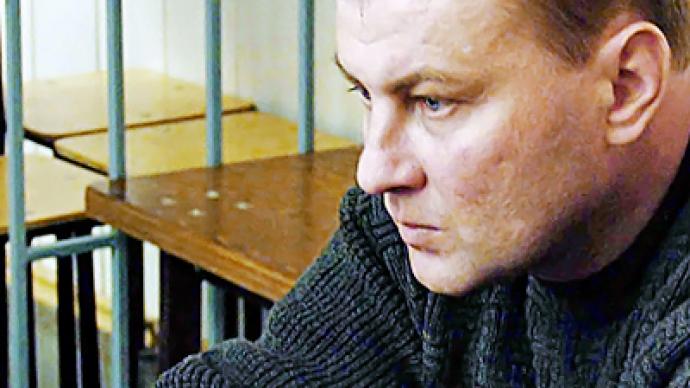Former colonel convicted of killing girl in Chechnya shot dead in Moscow

A former Russian army colonel convicted of kidnapping and killing a young Chechen girl in 2003, was shot dead in Moscow on Friday.
According to Russian news agencies, Budanov was shot six times at Komsomolsky Prospect in south-west Moscow on early Friday afternoon. Police say the suspected killers fled in a car, which was later found torched.An official representative of the Investigative Committee of the Prosecutor General’s Service has confirmed that the murdered man was Yuri Budanov.Yuri Budanov was convicted of kidnapping and killing 18-year-old Chechen girl Elza Kungayeva. The crime took place in 2000 when Budanov was serving in a tank regiment in Chechnya. He kidnapped Elza Kungayeva from her parents' home at night and strangled her in an effort to extract information about the whereabouts of militants in the region. He then ordered members of his unit to bury the body.The family of the murdered girl pressed hard for an investigation, and in March 2000 Budanov was arrested and charged with abuse of power, kidnapping, murder and rape. During the legal proceedings, he was cleared of rape charges but convicted of the other offenses. He was sentenced to ten years in a penal colony. During the process Budanov was found to be mentally ill, but the Supreme Court of Russia returned the case to court and pressed for a conviction.The case provoked strong public reaction in Russia, when it first started and then when Budanov pledged for clemency in 2004. His plea was supported by the governor of the region in which he was serving his term, himself a former army general who also fought in Chechnya. Numerous politicians and rights activists condemned the decision and mass rallies took place in Chechnya. Finally the plea was rejected, officially for technical reasons. Budanov’s early release in January 2009 drew much less attention.A contract hit on Budanov is the main ine of enquiry the Investigative Committee is considering, the agency's spokesman Vladimir Markin told the press. However, he added that the murder could be a “provocation”, although he did not say in whose interests.A lawyer working for the family of Budanov’s victim rejected the possibility that the murder was part of a blood feud. “To my awareness, the Kungayev family now resides in Norway and ordering the murder is not in the character of the head of the family,” Interfax news agency quoted Lyudmila Tikhomirova as saying. She also suggested that the reasons behind the attack could be in Budanov’s post-prison activities.Mr. Kungayev himself told RIA Novosti that Budanov’s killing was not linked to his daughter’s death. He said that he learned about the attack from a phone call he received in Norway where he is now living with his family. “I think it was not connected with the blood feud or Chechens. This is something else. The investigation will show what it is,” Kungayev said.Aleksey Dulimov, Budanov’s former defense lawyer, said that he considered it possible that his former client was killed by Muslim extremists. The lawyer said that Russian law enforcers should have provided Budanov with security guards and other means of protection when he was freed, but this never happened. At the same time, the leader of a radical Russian nationalist organization has said that Budanov’s murder would cause an outbreak of nationalist sentiment all over the country. In an interview with Interfax news agency, Dmitry Dyomushnin said the nationalists “had no doubts that the crime could be traced to the Chechen Republic”, but added that the possible blood feud could be connected not with Kungayeva’s murder, but with some other crime Budanov allegedly committed during his stay in Chechnya. The head of the human rights center Memorial, Oleg Orlov, also said that the murder could be revenge for a different crime committed by Budanov. He told reporters that the activists of his organization had information about four dead bodies with signs of torture found in the place where Budanov’s regiment was stationed. However, the rights activists strongly condemned the arbitrary killing even if the victim was a criminal. The head of the Moscow Helsinki Group, Lyudmila Alekseyeva, said she did not approve of murders, even if the motive was revenge. The head of the Civil Assistance Committee, Lyudmila Gannushkina, also said that she did not approve of killings under any circumstances.












